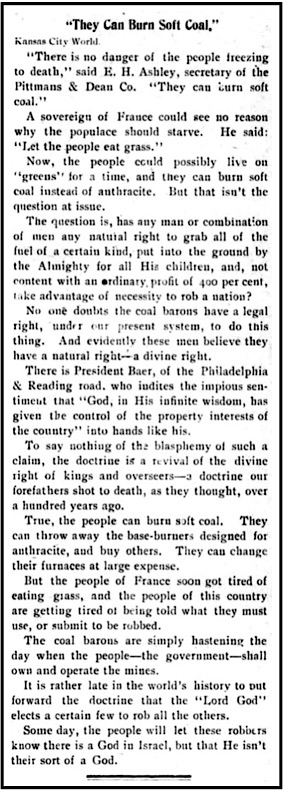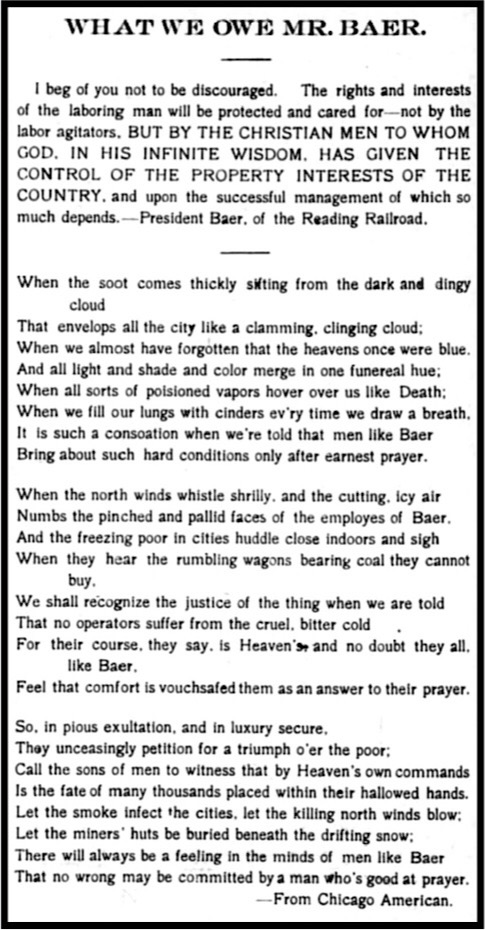 —————
—————
Hellraisers Journal – Wednesday November 19, 1902
Mother Jones News Round-Up for October 1902, Part V
Found Speaking in Holyoke and Celebrating John Mitchell Day in Wilkes-Barre
From the Holyoke Daily Transcript of October 27, 1902:
MOTHER JONES SPEAKS.
———-LARGE AUDIENCE LISTENS
———-
The Most Successful Socialist Rally
Held Here For Many Years.
———-
“Mother Jones, the miners’ friend” who has become well known all over the country for her fierce defence of the miners in the coal strike, and who has been arrested in the mining regions several times for her utterances, lectured in this city at the city hail last evening. That she was one of the persons who gained in popularity for her course was shown by the enthusiastic reception she received here. She was welcomed by the largest audience of any campaign speaker this fall, and the largest which attended a socialist rally for years, in Holyoke. It was attributed to her cause in which she appears to be in sympathy body and soul, and to the active part she has taken in it. “Mother” Jones is a pleasant-faced woman who speaks clearly and convincingly, and at times with the most bitting sarcasm. She made a big hit with the large audience. She has force and eloquence. She has been speaking a week in New England.
E. A. Buckland, the congressional candidate of the Socialist party, in this district, presided and introduced L. F. Fuller of Springfield, as the first speaker.
It was 8.30 o’clock before the speaking began.
Mr. Fuller said that a great case was on trial, a case of dollars against men. “The statement is sometimes made that money always did rule and always will rule. This is not true; as in the case of primeval man, money did not rule, and it is my firm belief that it will not long rule. In this country we do not recognize a governmental despotism, but an industrial despotism has already taken place. Abraham Lincoln placed labor above capital. Even in this country the hardest work is done by those who have the least. Labor is the creator of all values. We notice that the home-owners are disappearing. In the last few years the percentage of home-owners has dropped from 69 to 34 per cent. Socialism demands justice for humanity. The socialist objects to dividing up. If the laboring man was not continually dividing up the profits of his labor, there would be no millionaires in this country.
“Mother” Jones, at her introduction, was received with hearty applause.
One of the most important statements made by Mrs. Jones was that the strike is not at an end. She said the commission appointed by the president was organized because an election was approaching. Mrs. Jones wanted to know why the president took the insults of the coal barons so mildly sometime ago and then consulted with Morgan last Sunday on a yacht. She said the miners went back because of public opinion and public opinion did not care for them until the matter was brought home to the people by empty coal bins.
In speaking for organized labor co-operating with the socialists she said that during her 30 years’ acquaintance with the coal regions not a single clergyman protested against the oppression of the miners until the United Mine Workers entered the district. She said that if there is any Christian religion today it is in organized labor.
In speaking of the operators of Pennsylvania and the manner in which they treat the miners she said the operators can violate the law any time they please and 10 times a day if they desire. They seem to own the world, and all the people thrown in. She pictured the manner in which the coal barons live in contrast with the bare existence of the miners, who are compelled to bring their young children into the mines to help get a living. She made much of the journey of Morgan and some others across the continent when wine costing $35 a bottle was opened.
[…..]
She said the strike will not be settled in the coal regions until the miners get what belongs to them. They did not want charity, they wanted justice. Solidarity of labor, she said, was still in its incipiency. Mention was made of the probability of a strike of engineers and firemen that would overshadow the one now in existence. She said much was being urged against the militia and other weapons of the capitalists, but the greatest danger to the miners is the injunction.
In conclusion she urged the working people to emancipate themselves [by] the power of organized labor and by voting the socialist ticket at the polls.
[Photograph added.]

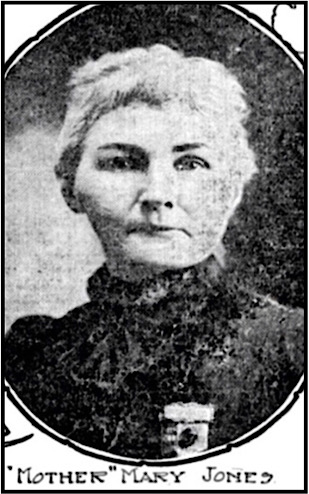
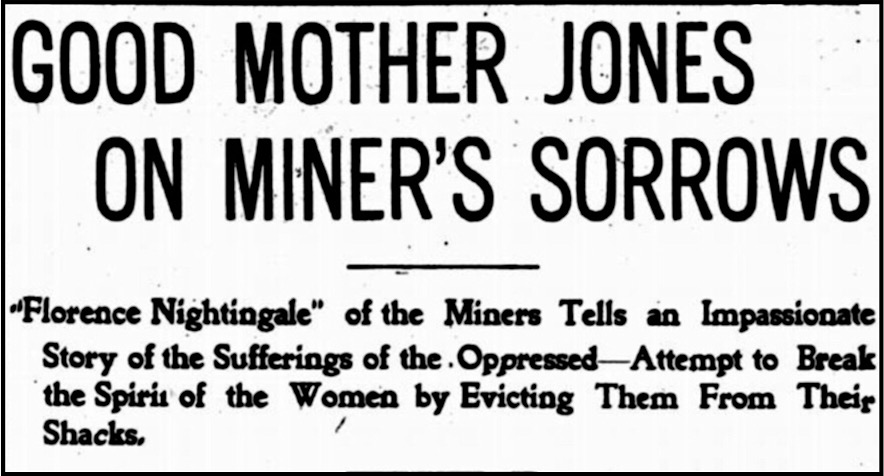
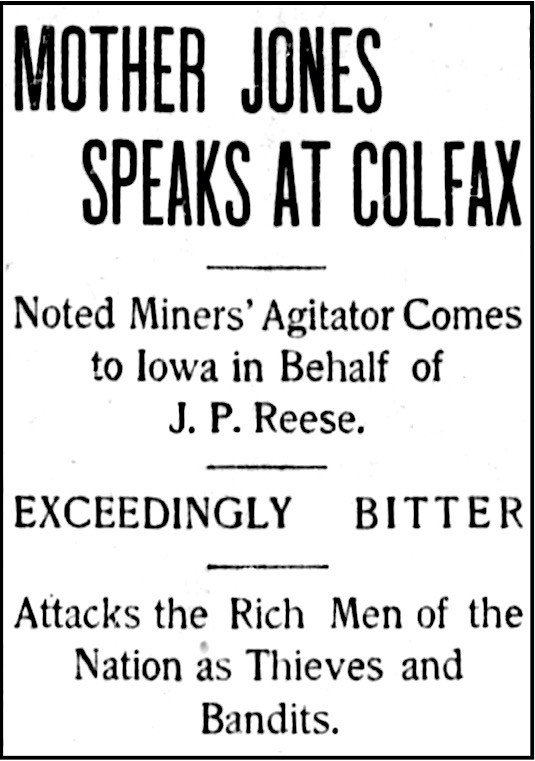
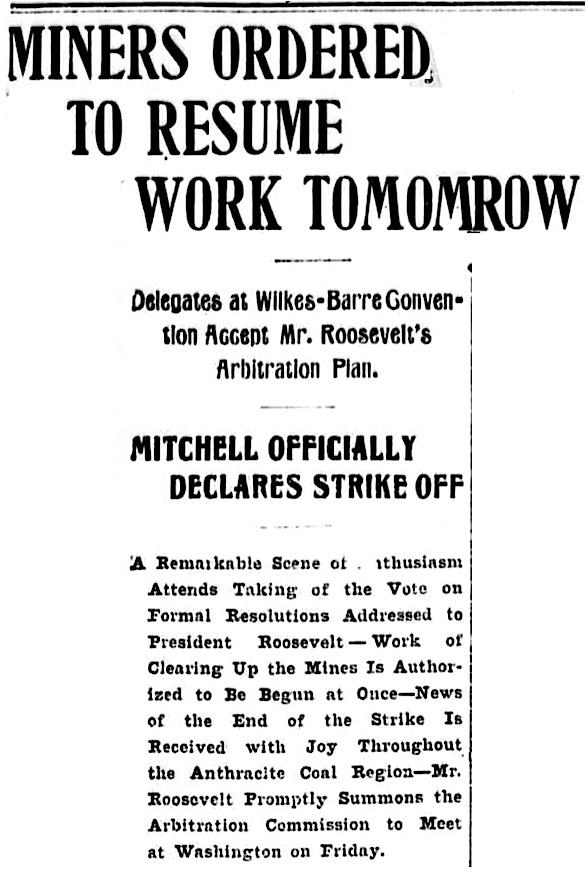
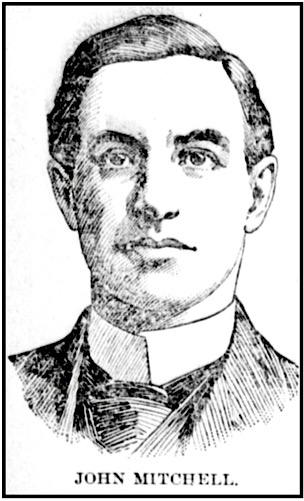
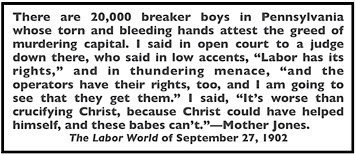 —————
—————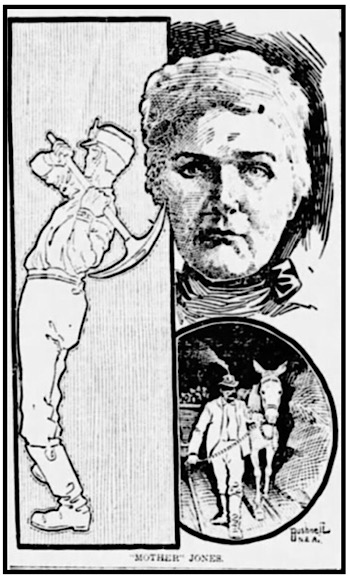
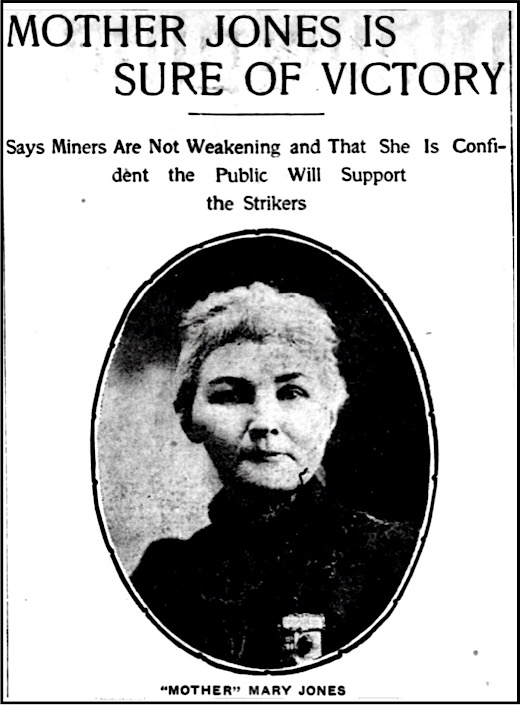
 —————
—————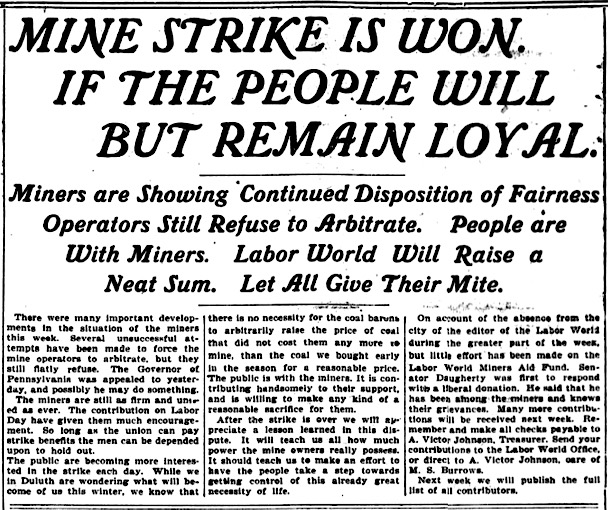
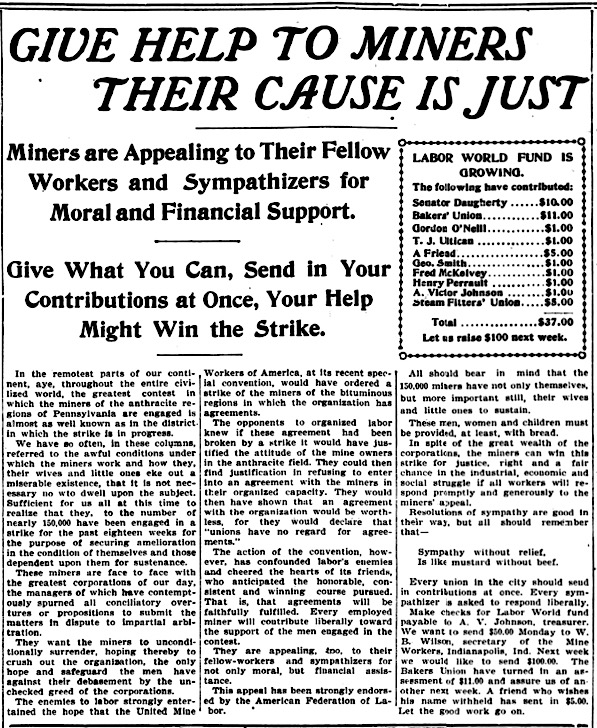
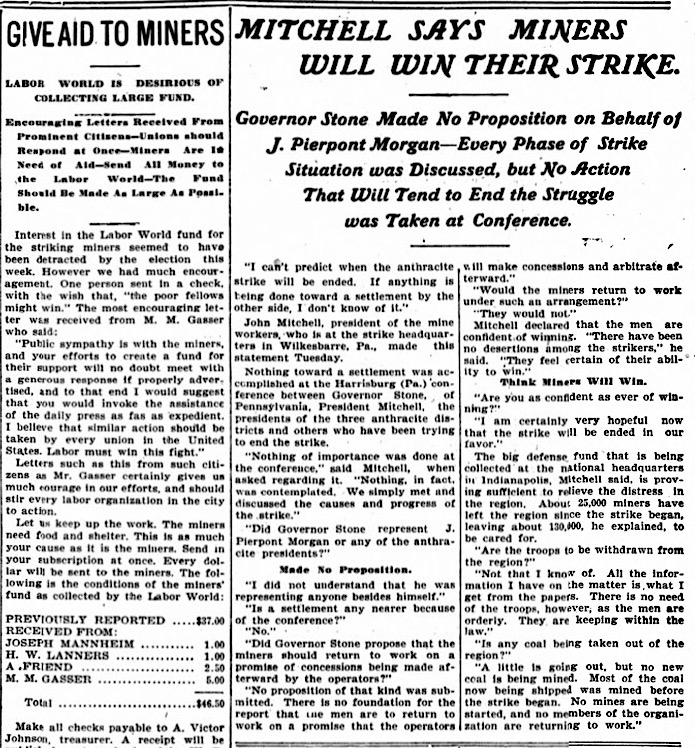

 —————
—————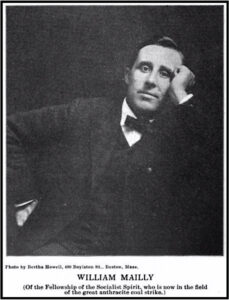
 —————-
—————-
 —————
—————